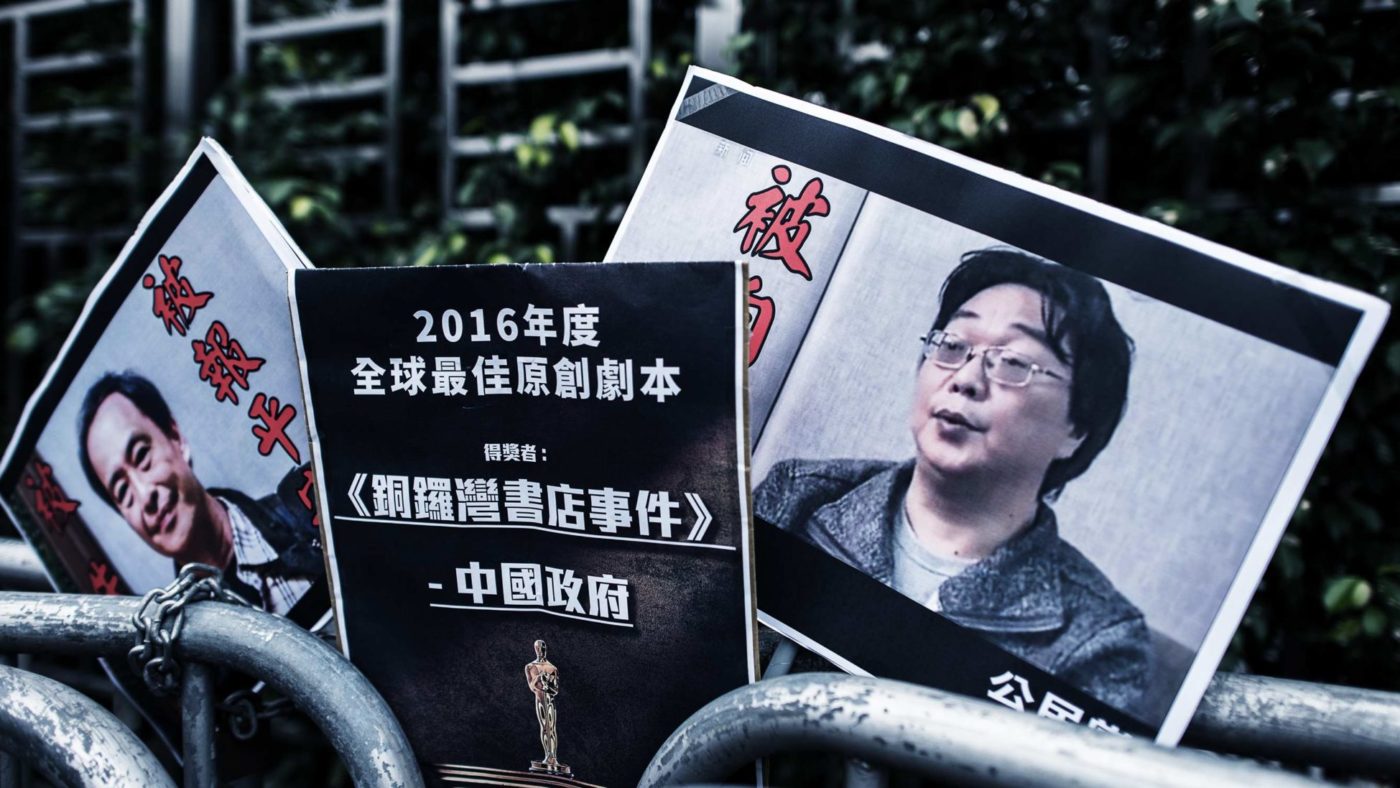The case of Gui Minhai, the Hong Kong bookseller who this week was sentenced in China to ten years in jail for “illegally providing intelligence overseas” after being abducted from Thailand in 2015, is further evidence of Beijing’s increasing encroachment in Hong Kong.
The case is one of the most egregious breaches of the Sino-British Joint Declaration since the handover. A bookseller known for publishing volumes critical of Xi Jinping, he was abducted, disappeared, tortured in a mainland jail, forced to participate in forced confessions, and kept in incommunicado detention for five years before his sham trial this week.
Gui’s sentence raises fresh concerns over the slow erosion of the rule of law and the freedoms the city has historically enjoyed, particularly the waning independence of the judiciary. For many activists the harshness of the sentence only reinforces a shared suspicion that free expression in Hong Kong increasingly runs the risk of punishment and imprisonment on the mainland.
It was this fear that led many Hong Kongers to take to the streets last year to protest a proposed Extradition Bill which, if passed, would have made it substantially easier for them to be extradited to stand trial in the mainland. You can hardly blame them when there is a 99% likelihood of conviction in mainland courts. Take Jiangsu province, where in 2018 the courts acquitted just 43 people, while convicting 96,271.
Last week, Reuters reported that one of the most senior judges in Hong Kong, Kemal Bokhary, said that the Hong Kong courts are in the middle of a ‘full force storm’, under assault from Beijing officials who do not fully appreciate the value of the city’s rule of law.
Gui Minhai’s case does not stand alone. Beijing has been increasingly ready to override Hong Kong’s common law when it suits them – whether ensuring the disqualification of young pro-democracy lawmakers from taking their seats, or ignoring Hong Kong’s basic law to demarcate mainland Chinese territory in one of Hong Kong’s major rail terminuses. A campaign of lawfare is eroding the independence of the judiciary. The extradition bill would have been the final straw, and drew a justifiably strong reaction.
But undermining the rule of law in Hong Kong will backfire for Beijing. As protests blew up on the streets of Hong Kong last summer, the debate about its value to China, once of paramount importance, was often ignored. The received wisdom was that Hong Kong’s importance to Chinese and Western investors has been on a constant path of decline since the end of British rule in 1997.
But new analysis from Hong Kong Watch’s latest report suggests that Hong Kong remains indispensable to China. As China’s only rule of law city, it is irreplaceable as a financial hub, a major source of foreign capital and a key springboard for Chinese firms seeking international exposure.
The city is home to the largest number of initial public offerings by Chinese mainland firms by a considerable margin – with 73% of IPOs taking place in Hong Kong between 2010 and 2018. The Hong Kong-Shanghai Stock Connect scheme is increasingly the preferred means by which Western investors access the mainland stock market. Hong Kong is the largest offshore centre for bond sales by Chinese companies, and the city mediates nearly two-thirds of direct investment into and out of China.
It also plays a key role as a private wealth management centre for high net worth individuals from mainland China, including many members of the Chinese Communist Party.
Through interviews with leading business leaders about what they find valuable in Hong Kong, we found that the continued economic success of Hong Kong is built upon its uniqueness. It is the only city in China with freedom of capital, freedom of information, fundamental freedoms, rule of law and autonomy. One managing director of an international bank said that the “rule of law was the most important reason for Hong Kong’s financial centre status”.
Shanghai, Shenzhen and Beijing will not be able to replicate that unless there is serious – and highly improbable – liberalisation on the mainland. All of these are increasingly important as financial centres, but they primarily serve the domestic economy – none can compete as a conduit for foreign capital. The relationship between China’s financial centres is primarily complementary, not competitive. They carry different strengths and varying benefits.
Actions like the abduction and arbitrary imprisonment of Gui Minhai both serve to underline why the rule of law matters to businesses which choose to reside in Hong Kong, and serve to undermine the city’s reputation. Hong Kong remains essential to China which is why any attempt to dismantle or undermine the rule of law and fundamental freedoms Hong Kong enjoys poses a huge economic risk.
Hong Kong’s ‘one-country, two-systems’ brand benefits China enormously. They are shooting themselves in the foot by undermining the rule of law. It is not only morally right, but in their direct interests, to free Gui Minhai.
Click here to subscribe to our daily briefing – the best pieces from CapX and across the web.
CapX depends on the generosity of its readers. If you value what we do, please consider making a donation.


